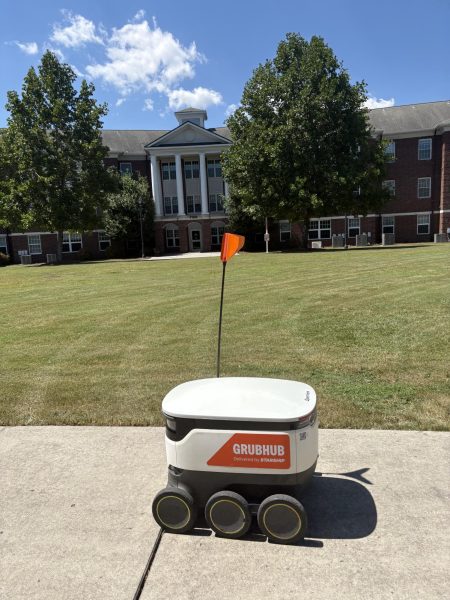The Board of Governors increases security and health fees
In February, the UNC System board of governors (BOG) approved to increase student fees for health services and campus security starting in fall 2021.
The health services fee will now be $246.07, an increase of $27.07, and the security fee will now be $60, an increase of $30. That brings the total increase to $57 for the 2021-2022 school year. Due to this increase, an extra $335,688 will be collected from students.
“There’s also increased discretion with what each campus can spend that [security fee] money on, and the major driving force behind that part of it was trying to fund more suicide intervention and prevention programs,” said Matt Talone, the Student Government Association (SGA) president, during a previous SGA meeting.
The health services fee will be divided to help several costs including:
-
- “$14.63 to replenish operating budget for past increases in personnel cost of $181,455.
- FY19 (full year) UNC System 2% SHRA (State Human Resources Act) and EHRA (exempt from SHRA) salary increase
- State-mandated medical and administrative staff salary increases to meet System compensation market rates (2017 six medical staff, 2020 six medical staff and eight admin. staff)
- Reclass vacant LPN (licensed practical nurse) and RN (registered nurse)
- Benefit increase FY18 – FY21
- “$14.63 to replenish operating budget for past increases in personnel cost of $181,455.
- $8.11 for anticipated increases in benefits ($100,564)
-
-
- Between FY18 and FY21, state retirement increased 4.55% and ORP (retirement plan) increased 0.58%.
- Between FY18 and FY21, health insurance increased $437 per FTE (full-time-equivalent)
- There are 35 FTEs covered by health insurance fees. The total increase for the prior four years was $80,500, or on average $20,125 per year. Data suggests the unit will require $100,625 to cover the benefit increase for the next five years.
-
- $4.33 for increases in medical supply costs ($55,692)
-
- Medical supply costs have risen on average 5.7% each year for the last four years (2017-2020). It is expected that the increase could be as high as 10% in 2021 due to the lingering effects of the COVID-19 pandemic on the supply chain.
- SHC (student health center) is requesting funding based on a 10% increase in year one and 6% increase over the following four years.”
Meanwhile, the security fee at UNCW is typically used to cover costs associated with “campus safety and security initiatives, including salaries, training and operations.”
The BOG told each campus to specifically use the security fee money for costs associated with campus police officer salaries, training, substance abuse counseling services, suicide prevention and intervention, Title IX and CLERY Act compliance and investigations and hearings for officers with serious offenses.
“Maintaining a safe campus environment is foundational to the Seahawk experience,” wrote Miles Lackey, vice chancellor for business affairs. “The security fee provides a critical funding source that will help move the salaries of our police officers and police dispatchers to the market rate, thereby allowing us to recruit and retain the professional talent the campus community should expect in their police department. These funds will also be available to support training priorities and equipment needs.”
The health fee increase varies across each of the UNC System schools, but the security fee increased the same across each campus. Compared to the other UNC System schools, UNCW’s fee increase still makes the health and services one of the lowest and the security fee increase about average.
According to surveys sent out by UNCW, 35.1% of students supported or strongly supported the increase and 40.5% opposed or strongly opposed it. The SGA supported this reallocation with 20 yays, five nays and two abstentions. Additionally, the CITI (campus-initiated tuition increases) committee unanimously (10-0) supported this reallocation.










